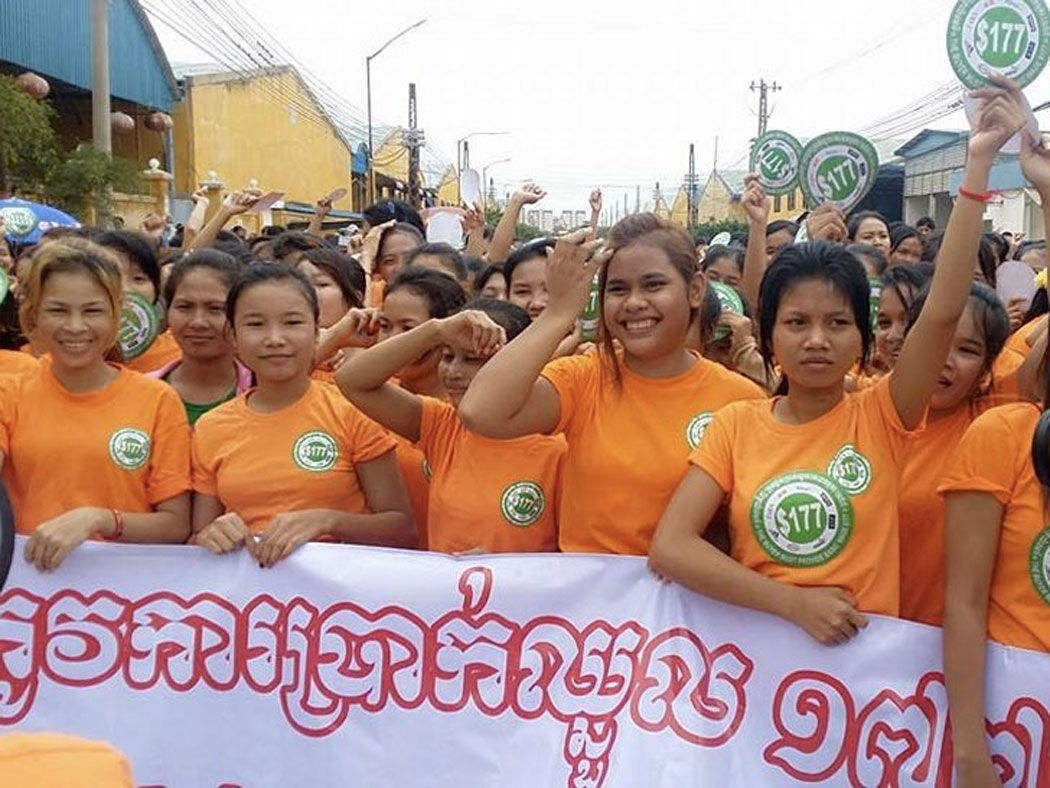After thousands of garment workers rallied across Phnom Penh last week to renew demands for higher wages, eight of the world’s leading fashion retailers said they are willing to pay more for clothes made in Cambodia.
In a move that labor-rights groups call “unprecedented,” C&A, H&M, N Brown Group, New Look, Next, Primark, Tchibo, and Zara’s parent company, Inditex, sent a letter to Cambodian Deputy Prime Minister Keat Chhon pledging to pay higher prices for Cambodian goods to ensure a “fair living wage.”
“Workers in all production countries have the right to a fair living wage,” the letter, dated September 18, read. “To ensure this, we expect an assured, inclusive and consistently applied national collective bargaining process between the legitimate parties within the labour market. This process must allow consideration of suggestions brought to the bargaining table by all parties, including the labor, employer, and government representatives.”
Although the brands stopped short of committing to a monthly pay of at least $177 (up from the current minimum wage of $100), they acknowledged that an “assured, inclusive, and consistently applied national collective bargaining process” was overdue.
Workers in all production countries have the right to a fair living wage
The companies also expressed the need for support from both the Cambodian garment and the Garment Manufacturers Association in Cambodia. “We also expect government and GMAC to establish processes to ensure all workers receive the new agreed minimum wage by monitoring wage implementation and policing suppliers that fail to meet the new minimum wage level,” they added. “This will ensure an equal level playing field and create a competitive advantage for the factories that comply with the new minimum wage.”
Jyrki Raina, general secretary of IndustriAll Global Union, said he welcomed the “unparalleled letter.” “Factory owners have no excuse not to pay their workers more,” he said in a statement. “What’s more, the Cambodian government should raise the minimum wage significantly. The letter also shows the brands recognize that unions are key to securing better worker rights, a fair living wage and a stable market.”
Ath Thorn, president of the Coalition of Cambodia Apparel Worker Democratic Union, called the message an important development, albeit one that doesn’t excuse retailers from playing an active role in negotiations.
“We know from past experience that just a letter isn’t strong enough—the brands must take additional action immediately to ensure a higher wage for Cambodian workers,” Thorn added. “To achieve long-term stability and decent wages, we need the ones who make the biggest profits to be accountable.”
Government officials and union representatives are scheduled to meet in October to discuss minimum-wage laws for the garment industry. Clothing manufacturing is now Cambodia’s single-largest private employer, bringing in $5 billion each year, or more than a third of the country’s annual gross domestic product.
Source: Ecouterre











